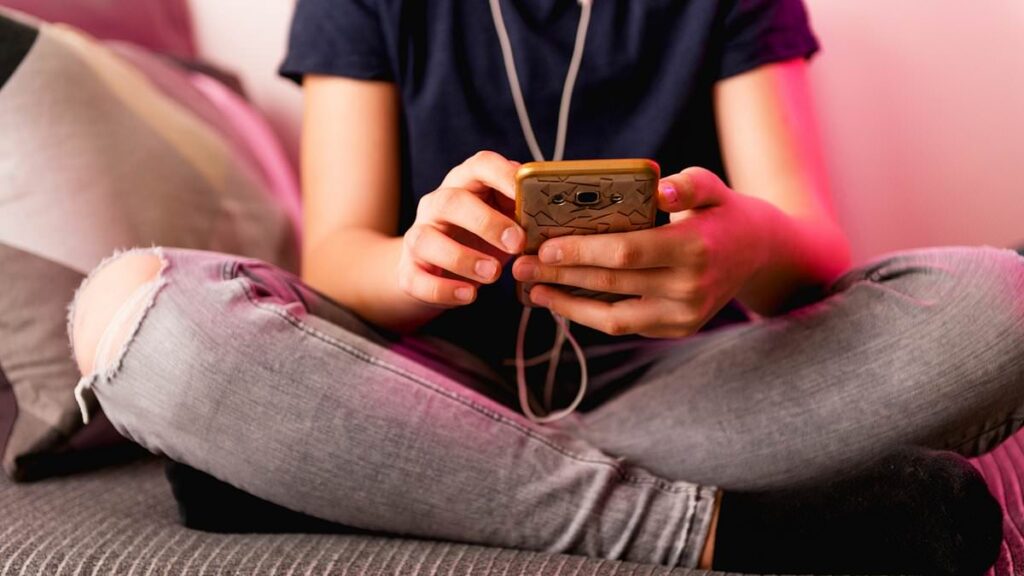Denmark Bans Social Media for Under-15s
By FRANCINE WOLFISZ, NEWS REPORTER
Denmark will become one of the first EU countries to ban social media for children under the age of 15 over concerns for their mental health.
The Danish government will however allow parents to give access to children aged 13 and over for certain platforms.
Friday’s announcement came after Minister Mette Frederiksen called for the government to restrict social media to children in her opening speech to parliament last month.
‘The so-called social media thrive on stealing our children’s time, childhood and well being and we are putting a stop to that now,’ Digitalization Minister Caroline Stage Olsen said.
A majority of parties said they would back the plan ahead of a formal vote.
The platforms most used by children in Denmark include Snapchat, YouTube, Instagram and TikTok, the government said.
According to an analysis from the Danish competition and consumer authority published in February, youngsters in the Nordic country spend on average 2 hours and 40 minutes every day on social media.
The strident move from Denmark follows the likes of Australia, which last year imposed a ban on social media for children under 16.

Denmark will become one of the first EU countries to ban social media for children under the age of 15 over concerns for their mental health
Australian communications minister Michelle Rowland said at the time that the age limit would keep children and teenagers safe online.
‘We know parents are concerned about the harms to children and we have taken a decision to support them,’ she told parliament.
‘Keeping Australians safe online requires decisive action and the Albanese government is delivering exactly that.’
Prime Minister Anthony Albanese added: ‘Social media is doing social harm to our children and I want Australian parents to know that we have their backs.
‘Platforms now have a social responsibility to ensure the safety of our kids is a priority for them.’
Under the new laws, social media giants will face fines up to $50million if they fail to take ‘reasonable steps’ to keep children under the age of 16 away from their platforms.
There are no penalties for parents or children who break the age restrictions.
Messaging apps, online gaming services and ‘services with the primary purpose of supporting the health and education of end-users’ are not included in the ban.

Friday’s announcement came after Minister Mette Frederiksen called for the government to restrict social media to children in her opening speech to parliament last month
YouTube has also been omitted.
Many critics have questioned how the ban will work, while others have raised concerns about social connection.
The billionaire owner of X, Elon Musk, is among those who have warned that Australia’s new laws will not work.
‘Seems like a backdoor way to control access to the internet by all Australians,’ he recently captioned a retweet of Mr Albanese speaking about the age-limit reforms.
Suicide Prevention Australia executive director Christopher Stone said the laws had been rushed and would not address the issues of bullying and predation as the government had claimed.
‘The government is running blindfolded into a brick wall by rushing this legislation,’ he said.
‘It has bypassed the rigorous consultation and scrutiny needed for such a far-reaching decision.
‘Young Australians deserve evidence-based policies, not decisions made in haste.
‘This legislation fails to consider the positive aspects of social media in supporting young people’s mental health and sense of connection.’
France and Norway have also taken steps towards a social media ban for children under 15.
The issue was also debated in the UK parliament earlier this year after a petition gained hundreds of thousands of signatures.
But politicians were not in favour of supporting a ban.
A statement said: ‘Children face a significant risk of harm online and we understand that families are concerned about their children experiencing online bullying, encountering content that encourages violence, or other content which may be harmful.
‘We will continue to do what is needed to keep children safe online. However, this is a complicated issue.
‘We live in a digital age and must strike the right balance so that children can access the benefits of being online and using smartphones while we continue to put their safety first.’



















